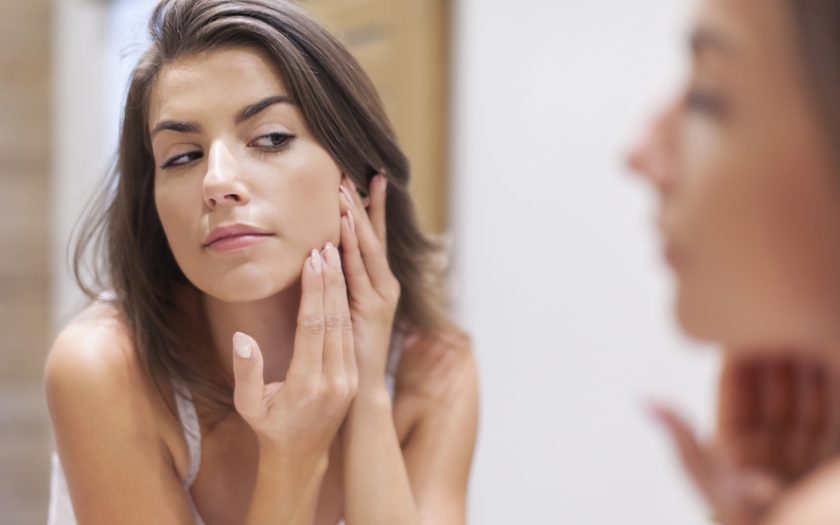Moisturize your skin regularly.
Choose cosmetics that use NMF components as moisturizing ingredients, for example:
- amino acids;
- lactic acid.
The main moisturizing elements during menopause should be amino acids. They simultaneously moisturize the skin and promote protein synthesis. Other components (plant and algal polysaccharides, hyaluronic acid, chitosan) act as a reservoir of water and help maintain the desired level of skin moisture.
Use natural oils.
For normal functioning, the skin needs polyunsaturated fatty acids – especially linoleic (omega-3 acid). Such fatty acids are not synthesized in the body. Thus, food and cosmetics are the only sources that affect the skin inside and out. Omega-3 and Omega-6 acids can heal and regenerate the skin.
With hormonal stress during menopause, the body is deficient in these essential acids. As a result, the skin begins to redden, become dry and prone to irritation. This indicates a violation of the lipid barrier of the epidermis. In addition, linoleic acid deficiency causes a violation of the metabolism of prostaglandins – regulators of immunity.
The best oils for the skin are black currant, apricot, soybean, sesame, grape seed and milk thistle oils. They contain essential polyunsaturated fatty acids and help to quickly restore the skin’s barrier functions.
Use UV protection.
During menopause, a constant change in hormone levels can lead to increased sensitivity to ultraviolet rays. Ultraviolet light is considered to be the most aggressive stressor that damages the skin. Under the influence of ultraviolet light, the skin loses up to 70% of vitamin C in just ten to fifteen minutes. Ultraviolet filters, which are part of cosmetics, are able to absorb or reflect the ultraviolet part of solar radiation.
Be careful when using sunscreen. Many SPFs are a common cause of allergic reactions to cosmetics. So, when buying a product with a high SPF, you need to test it.
Use retinoids.
Among the vitamins used in modern cosmetology, vitamin A (retinol) is considered one of the “magic”. It affects all living skin cells, regulating the process of intercellular interaction. Retinoids cause simultaneous thickening of the epidermis and exfoliation of the stratum corneum, accelerating cell renewal. When using retinoids, reddening of the skin and temporary peeling may be observed; these are indicators of skin renewal.
Eat healthy foods.
During menopause, you should not forget about changes in metabolism. In addition to using a variety of cosmetics, you need to take care of proper nutrition. You also need to drink enough water, because even with a little dehydration, metabolic processes slow down by 30%. As a result, the skin loses elasticity, and the aging process of cells accelerates.

